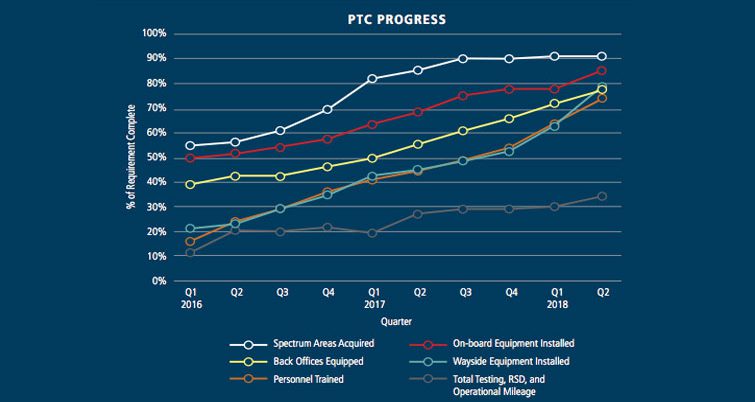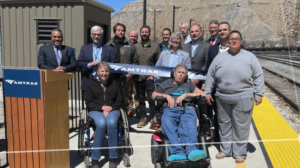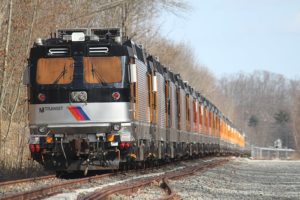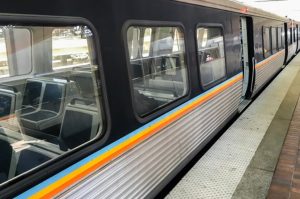Commuter rail industry continues its steady progress toward PTC implementation
Written by Mischa Wanek-Libman, editor
The American Public Transportation Association (APTA) provided a second quarter 2018 update to progress the commuter rail industry has made toward implementing Positive Train Control (PTC).
APTA President and CEO Paul P. Skoutelas lauded the commuter rail industry’s progress, but said it was still too early to predict if any of APTA’s commuter rail members would miss the Dec. 31, 2018, statutory deadline.
“Every year, 30 commuter railroads across America safely carry passengers on 501 million trips,” said Skoutelas. “With safety as our number one priority, the commuter railroads are making strong and continuous progress in implementing Positive Train Control.”
Compared to first quarter statistics, the biggest markers to see movement are the number of employees trained in PTC, which went up to 74 percent in Q2 compared with 61percent in Q1 and the percentage of back-office control systems that are ready for operation, which increased to 78 percent in Q2 compared with 70 percent in Q1.
APTA’s analysis found that as of June 30, 2018, the commuter rail industry has:
- 91 percent of the needed spectrum acquired; up from 88 percent in the first quarter
- 85 percent of the onboard equipment has been installed on locomotives and cab cars etc.; up from 81 percent in the first quarter
- 79 percent of wayside (on track equipment) installations have been completed; which is static from the first quarter. However, in the first quarter 79 percent of 9,772 wayside installations were completed, in the second quarter it’s 79 percent of 14,083 wayside installations.
- 78 percent of back office control systems are ready for operation; up from 70 percent in the first quarter
- 74 percent of employees have been trained in PTC; up from 61 percent in the first quarter and
- 34 percent of commuter railroads are in testing, revenue service demonstration or are operating their trains with PTC; up from 30 percent in the first quarter
During an Aug. 14 media call, Skoutelas was joined by Southeastern Pennsylvania Transportation Authority (SEPTA) General Manager Jeffrey D. Knueppel and Metra CEO and Executive Director Jim Derwinski, who offered insight into the challenges of implementing PTC.
“Positive Train Control is a critical commuter rail safety enhancement,” said Knueppel. “Implementing PTC at SEPTA, during a challenging period of capital funding, has been an authority-wide commitment. Throughout this effort, our in-house team has been working continuously with Amtrak, our freight partners and third-party contractors to address technical and interoperability challenges. SEPTA trains on all 13 Regional Rail Lines are equipped and operating with PTC, and SEPTA is proud to have implemented this safety technology for our customers and employees.”
“Implementing Positive Train Control in Chicago’s dense and busy railroad network has been very challenging, but Metra is right where we said we’d be in terms of finishing the job,” said Derwinski. “Working with our freight partners, we expect to have PTC implemented or in revenue service demonstration on six of our 11 lines by the end of 2018, and to complete the job by 2020.”
APTA called the implementation of PTC an “unparalleled technical challenge” given its scale, complexity and time required, but noted that the commuter rail industry is moving aggressively to meet the challenge despite the technical and financial constraints.
APTA has also launched a website dedicated to the commuter rail industry’s PTC progress; it can be found at ptcfacts.com.





